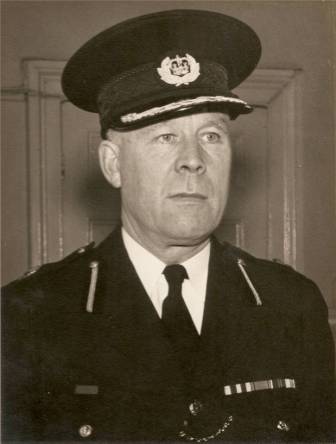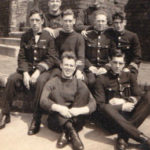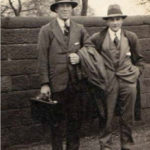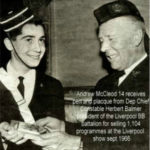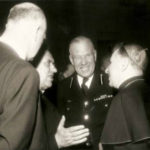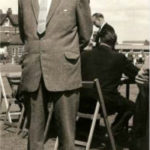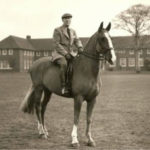HERBERT BALMER by chris kelly, retired
Herbert Richard Balmer was born in the Toxteth Park parish of Liverpool in November 1902 and lived in nearby Cairns Street during his formative years. As a youngster he attended St Silas School before embarking on an apprenticeship at Garston docks and eventually following in his father’s footsteps by going to sea. His overseas journeys in the Merchant navy took him to South America, the Bahamas and even the Arctic.
Bert loved being at sea and all of his life he preferred to travel on ships when the chance presented itself. But in 1926 times were tough and the life of a seaman was no place for a young man who had his whole life before him. The General strike was looming and work prospects within the shipping industry were grim, so Bert started to look elsewhere for employment. His commanding officer advised him to consider a job for the future, maybe a career in the Police force.
In 1926 Bert was accepted into the Liverpool City Police and served in the city centre as a uniformed Police Constable. Initially he did not like his job but he did receive an award from the Shipwreck & Humane Society for rescuing a woman from the River Mersey who had tried to commit suicide, a rescue that actually hospitalised Bert himself.
In 1930 he joined the CID and later became a Sergeant moving to the Liverpool City Magistrates Court as a Police prosecutor in 1938, where he spent a good number of the war years until 1944. By this time Bert was a very experienced Police officer having served almost 20 years. The war was coming to an end and experienced detectives were in short supply. Bert saw his opportunity and returned to the CID and by 1947 he had been promoted to Detective Inspector rising to Detective Chief Inspector by 1949 – the year of his most notorious crime investigation – The Cameo Cinema murders.
Bert Balmer investigated many serious crimes and worked on over 100 murder investigations including the Alice Rimmer Cranborne Road case of 1950, the Knowsley Hall slayings of 1952 and the Old Curiousity shop murder in 1953. He had become an Assistant Chief Constable in 1956 and remained active on criminal investigations even as late as 1962 and the “Tiki” killing of Maureen Dutton.
In 1964 he took command of Liverpool City Police as Acting Chief Constable due to the retirement of the Chief Constable. At this time crime in Liverpool city centre was rife and new forward thinking measures were required. He put together a squad of officers who were all handpicked to patrol the city centre in plain clothes and they became known as “The Commandoes”. A CCTV camera was installed on top of Lewis’s department store and the press were invited to a conference where Bert had many times sought assistance for help on crime enquiries. The press were told about the CCTV cameras that by that time had “been installed around the city” and this fact was reported to the greater Liverpool public. The Commandoes became very successful and crime fell dramatically in the city centre.
But despite his success, he would never attain the substantive rank of Chief Constable. The rules were and still are, that any officer who is to be a Chief Constable must have served in at least 2 Police forces. The Police Watch Committee at the time approached the Home Secretary in an effort to waiver this rule but this was declined. In August 1965 Sir James Houghton was appointed Chief Constable of Liverpool city police. Bert retired shortly before his 65th birthday in 1967 having served for over 40 years and became a director of Securicor. He died in 1970 from a massive heart attack whilst on the Wirral, five days before he was due to marry for the second time.
Bert Balmers record of achievement was prolific within Liverpool City Police. Having earned many Certificates of Merit from the Watch Committee (the highest award they could bestow and usually with gifts of silverware), he also was awarded the Kings Police and Fire Service medal and later the OBE. He was President of the Liverpool Boys Brigade having been associated with the organisation since his childhood and his other interests throughout his life were boxing, horse riding and mending old shoes! He is survived by his son and daughter.
When James Haughton became Chief Constable he changed the name of the Commandoes to “The Task Force”. Today they are called the Operation Support Unit or in other cities the “Tactical Aid unit” and “Territorial Support Unit” etc. Whatever their name, it started here in Liverpool and Bert Balmer was the man behind it all.
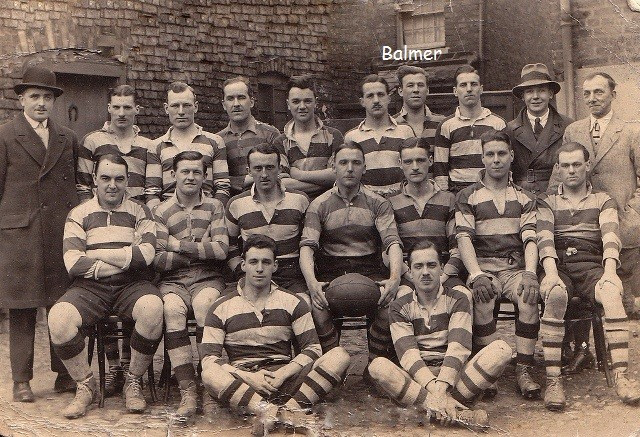
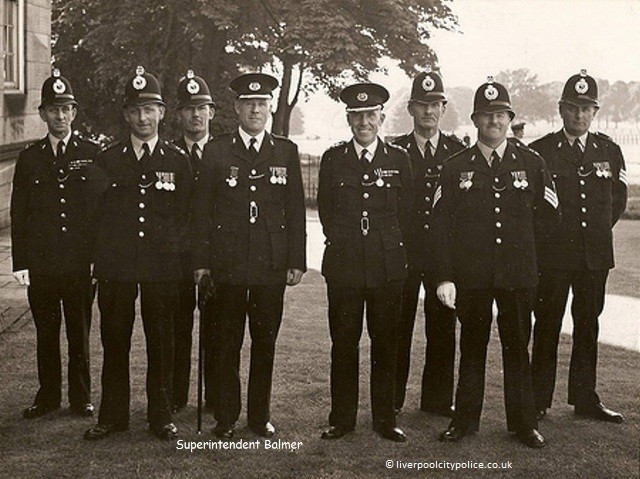
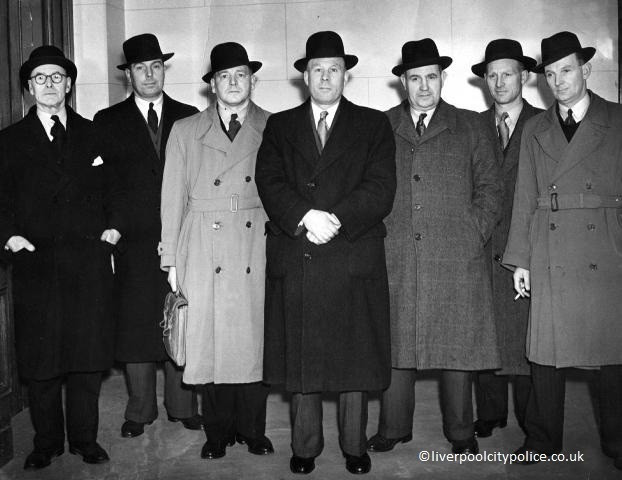
L-R: Prosecutor Bishop, D/Sgt. Ernie Richardson, D/Insp. Gordon Lees (Officer i/c enquiry), D/Ch. Supt. Herbert Balmer, D/Ch.Insp. Jimmy Morris, Unknown, D/Insp. Gordon Wade
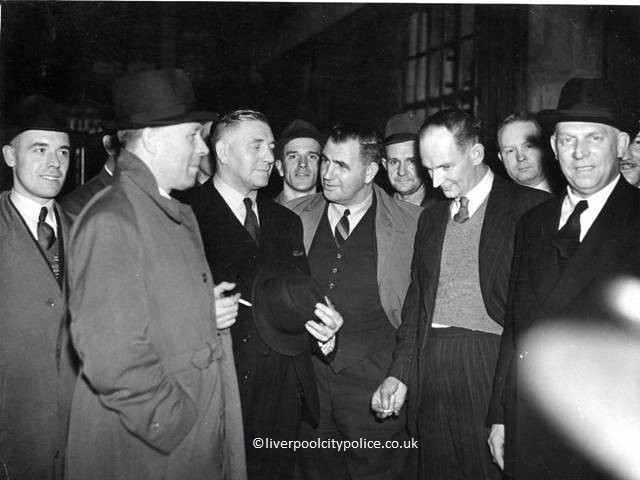
Front row L – R: D/Ch. Supt. Herbert Balmer, D/Insp. Gordon Lees, D/Ch. Insp. Jimmy Morris, D/Insp. Gordon Wade, D/Sgt. “Jock” Sturrock


